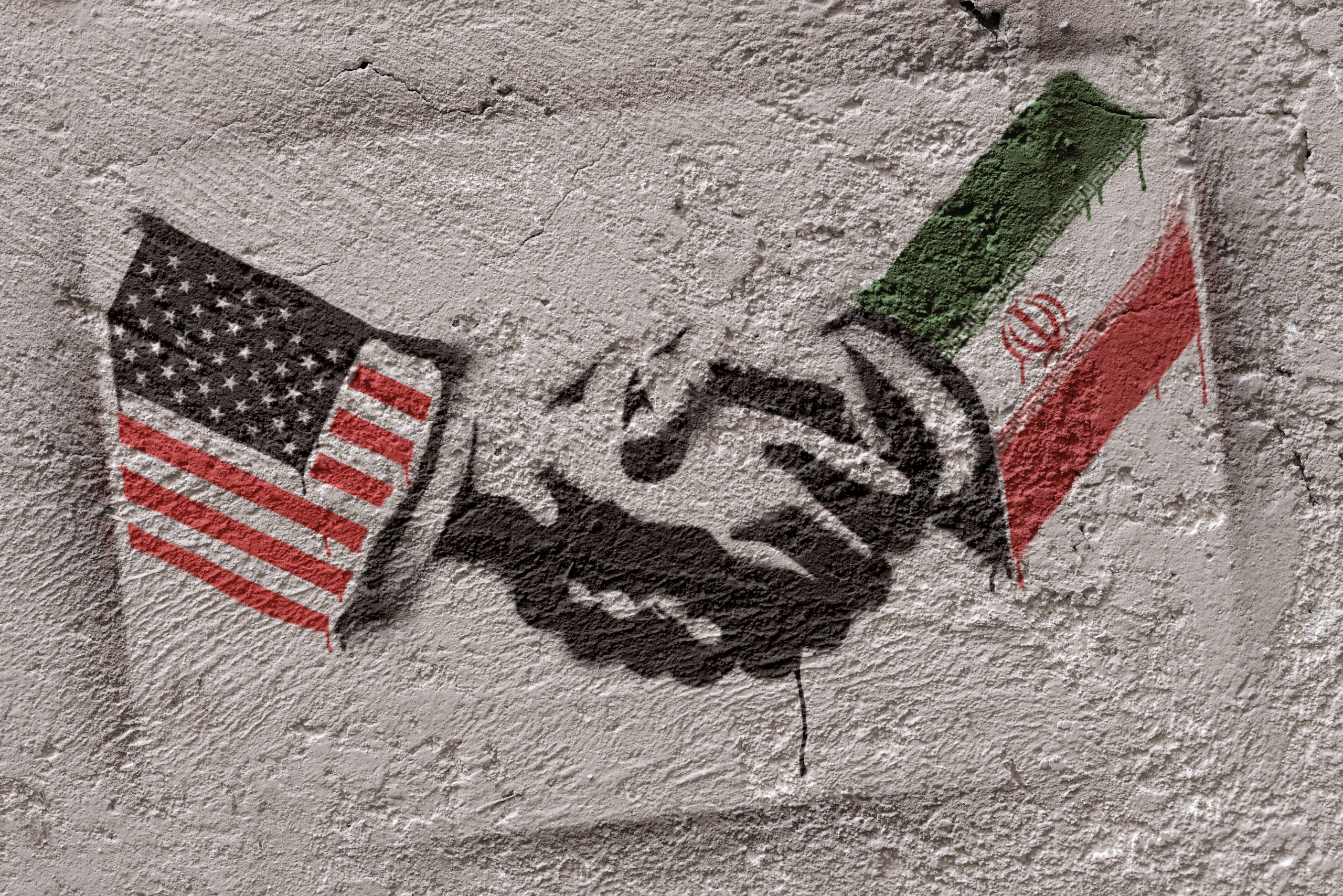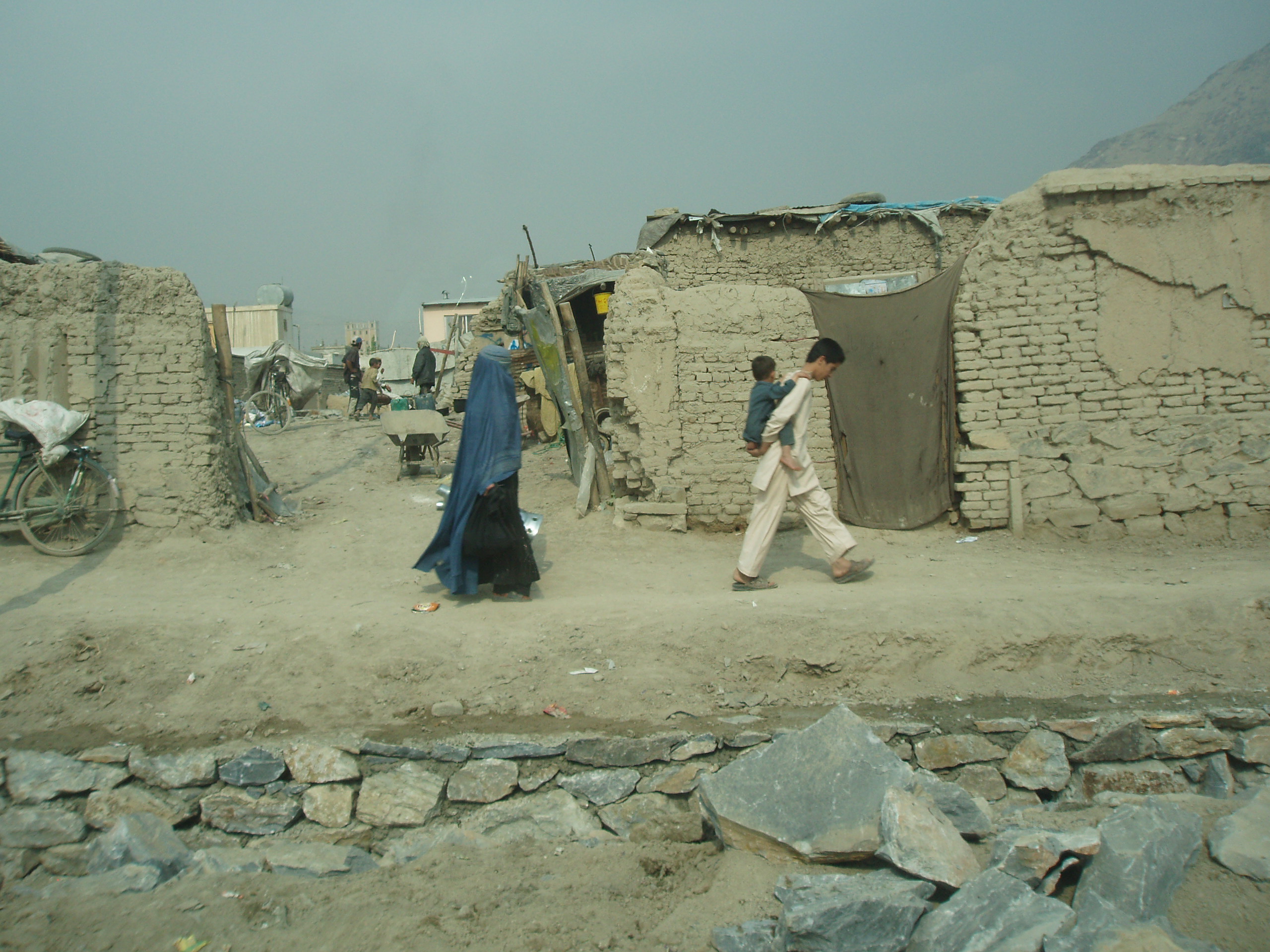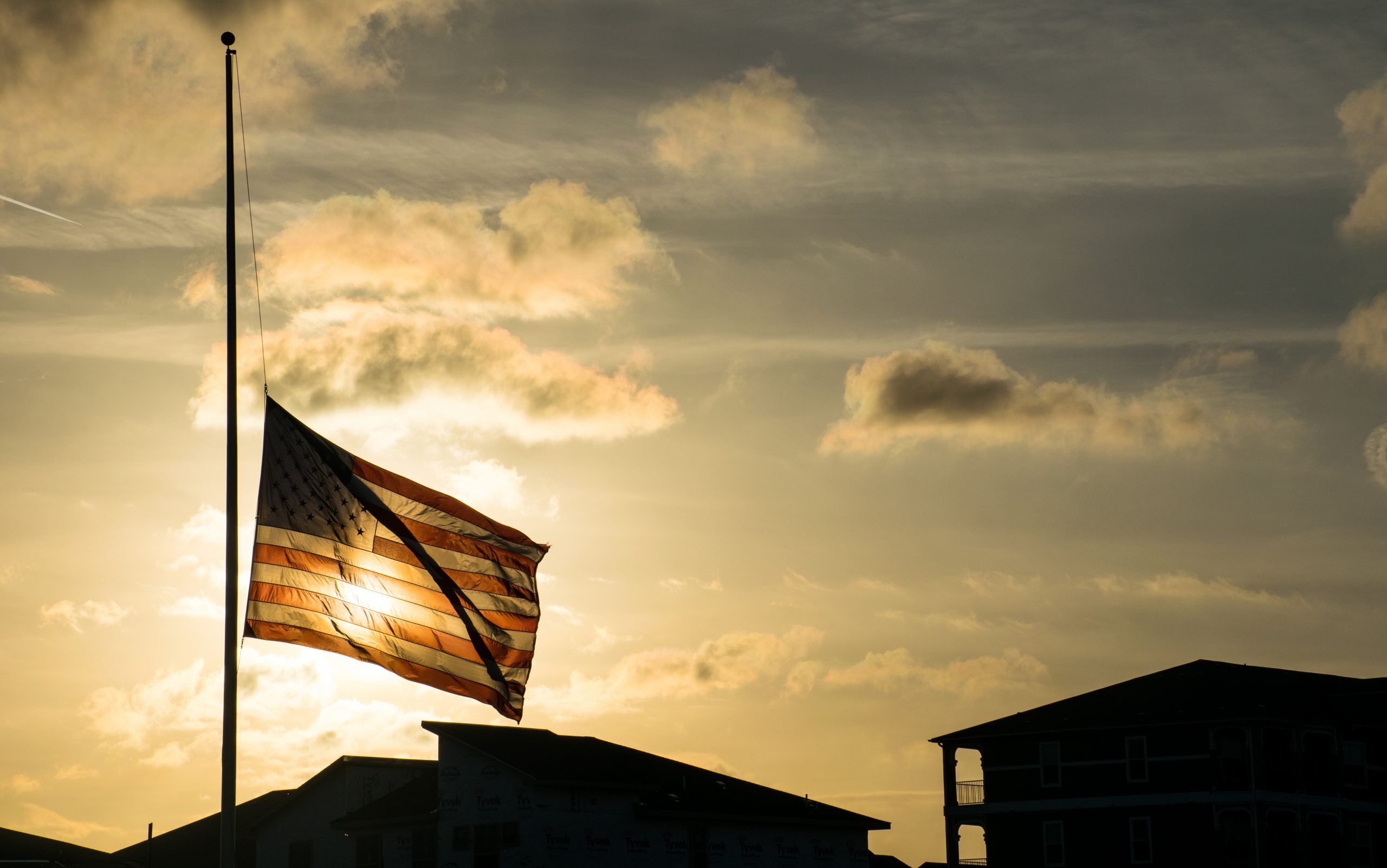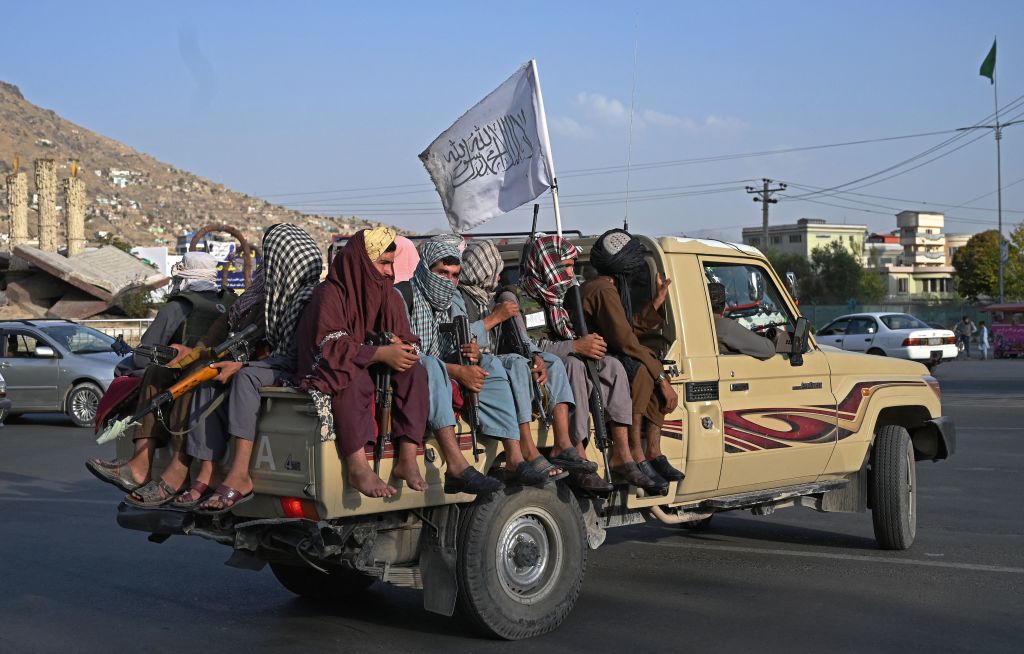The media's favorite pawns are invoked again.
Woke Crescent

Like Obama, Biden bends the arc of the Left toward Islamism.
After 20 years of sacrifice and toil, massive investment of American blood and treasure, and sweeping promises to the people of Afghanistan, the U.S., and the world, America’s political class has abandoned Afghanistan to the Taliban. In the span of eight short months, Joe Biden ended America’s “endless war” without regard to the costs sunk, the military equipment handed to the enemy, or the lives destroyed.
By any objective measure, it was a rout—a disastrous defeat for America courtesy of the Biden Administration. So why does so much of the establishment seem to be satisfied with what happened? Aside from the ugly optics of the retreat, Biden and his claque don’t seem to mind the end result overmuch. In fact, President Biden informed America that, appearances to the contrary notwithstanding, his withdrawal as an “extraordinary success.”
America today is in the grips of an internal struggle over values, goals, and meaning itself. Woke progressives—including the leadership of the Democratic Party, the mainstream media, academia, Hollywood, Silicon Valley, the teachers unions, most professional organizations, and America’s cultural elite—are intent upon redefining America’s past, its ideals, and its vision for the future. Americans of a more traditional bent find themselves left in the dust as they can no longer recognize the depictions of America, or the articulations of American values, they see and hear.
Events unfolding in Afghanistan are a projection of this internal conflict on the level of foreign policy. No doubt, President Biden and his team are disturbed by the blowback they’ve received for poor execution. They’re likely dismayed at the needless loss of American lives. There’s no indication, however, that they disapprove of the general outcome—a Taliban takeover of Afghanistan, complete with tens of billions of dollars of advanced weaponry. Certainly nothing President Biden has said suggests that the benefit of hindsight has caused him to rethink his strategy.
It’s important to understand why President Biden is so confident that he acted correctly despite events that many Americans—and American allies—consider antithetical to American interests. He simply disagrees with their assessment of American interests.
What we’re witnessing is another clear demonstration of the corruption and anti-Americanism driving American elites. The experts in government, media, and academia whose job is to frame major values conflicts for public consumption have instead sown confusion. How could President Biden have pulled out so abruptly, without securing our people and our military equipment? Did his military and intelligence advisors assure him that everything would work out, or did he override their recommendations? How could he have trusted the Taliban to allow, and perhaps even to assist, the safe exfiltration of stranded Americans? Why did a massive suicide bombing that killed 13 young American soldiers and hundreds of Afghanis catch him unprepared?
The answers are straightforward: Everything we are witnessing in Afghanistan flows from the worldview of woke progressivism. President Obama laid the groundwork with a consistent set of policies and strategies for approaching the Muslim-majority world—over 50 sovereign countries and roughly 20% of the world’s population. The behavior of the Biden Administration represents a resumption of the Obama framework.
Pyramid Scheme
Obama’s first significant outreach was his June 2009 speech in Cairo. In staging that event, the Obama team insisted that the U.S.-aligned Mubarak regime pack the audience with members of the Muslim Brotherhood (MB), the oldest, largest, and most important Islamist organization in the Sunni world—and a group whose relationship with Mubarak was tense, at best.
In a breach of diplomatic practice, Obama addressed his audience as Muslims, rather than as Egyptians. He apologized for a long history of America’s alleged affronts against Muslims and fabricated a positive role for Islam in America’s founding. He also incorporated what may have been the single most tone-deaf statement that any Western leader has ever made to a Muslim audience: “I’m a Christian, but my father came from a Kenyan family that includes generations of Muslims.” Under Islamic law, the children of a Muslim man are Muslims. A Muslim who denies his faith is an apostate. The punishment for apostasy is death.
Mainstream American media, fawning as always over Obama, ignored that shocking confession and heralded a new era in America’s relationship with Islam. Obama rode those accolades to support the “Arab Spring” uprisings of 2011, including the replacement of Mubarak with an MB government and the creation of an anti-American power vacuum in Libya.
In 2012, Obama blinked at enforcing his own red line in Syria, handing effective control of the country to Russia and Iran. In 2013 he opposed the military coup that deposed the MB and reinstalled a pro-American regime in Egypt.
In 2015, he unveiled an “Iran deal” that achieved none of the goals he had described as hard prerequisites for an agreement. The deal’s net effect included saving the Iranian economy, handing the mullahs pallets of cash, and normalizing Iran’s nuclear program.
Through it all, Obama favored the terror-sponsoring Palestinian Authority (PA) over Israel, alienated traditional American allies in the Gulf Cooperation Council (GCC), and embraced the MB-friendly regimes in Qatar and Turkey. He announced a steady stream of withdrawal deadlines for Iraq and Afghanistan, complicating pro-American activities in both arenas. For good measure, he repeatedly denied any Islamist connection to the various terror attacks by Muslims in the U.S., Europe, India, Israel, and elsewhere.
Coalition of the Killing
Obama’s track record demonstrated a coherent and consistent worldview that no one in his administration—including the reputedly foreign-policy savvy vice president Biden—was ever willing to articulate to the American public. It also demonstrated the abject corruption of America’s foreign policy experts and pundits, whose job includes exposing the themes that politicians would prefer to hide.
The Obama worldview is simple. The Muslim world is engaged in a multilateral civil war. Radically incompatible visions of Islamic faith, culture, and society are vying to define modern Islam. Because there’s no way to contain a convulsion involving more than a fifth of the globe, it’s incumbent upon all outsiders to find Islamic allies. That much is hard to dispute.
The problem comes in the allies that Western progressives have selected. Under progressive “intersectionality,” the authentic, and thus most worthy, voices of any non-Western group must be those that are angriest, most aggrieved, and most anti-Western; anything else represents a degrading sellout to centuries of imperial impositions. In today’s Islamic world, the voices that progressives deem authentic therefore belong to the Islamists—angry, intolerant, anti-liberal, anti-Western, antisemitic Muslim supremacists.
Islamist organizations vary widely on both strategy and tactics. The MB, now over 80 years old, is a tightly disciplined organization capable of taking a long view, pushing incremental advancement, and working through existing institutions. Most of the more spectacularly violent Sunni Islamist groups—including Al Qaeda, ISIS, and the PLO—trace their founding to impetuous Brothers who split with the MB because of their preference for action and notoriety.
Similarly, the Shiite Islamists running Iran have managed to temper their own revolutionary instincts enough to run a country and a movement simultaneously for more than 40 years—a feat requiring a certain amount of restraint, plausible deniability, and long-term thinking.
To woke progressives like those staffing the Obama and Biden administrations, these disciplined (though decidedly not moderate) Islamists are ideal Muslim allies. Biden’s abdication in Afghanistan arose because he decided that the Taliban had matured to the point that it too could demonstrate the sort of disciplined Islamism necessary to join the international community. His withdrawal did more than extricate the U.S. from a situation that had confounded Trump, Obama, and Bush—it signaled to Iran that the U.S. stood behind disciplined Islamists.
Fellow Travelers
This alliance between American progressives and disciplined Islamists is quite coherent. The progressive affinity for Islamists stems from the belief that the U.S. is an inherently racist, supremacist, imperialist force that deserves expulsion from the many lands it has occupied and corrupted—most importantly, western Palestine. A progressive desire to ally with authentic, anti-American Islamists willing to move slowly, avoid spectacular violence, and discipline their own hotheads is eminently sensible given progressive values and beliefs.
There is thus nothing remotely shocking about a progressive U.S. administration identifying the MB and the Iranian government as suitable allies—or in reaching out to the more disciplined leaders within groups like the Taliban and Fatah. Progressives like Obama and Biden recognize that the honest promotion of such allies would be even less popular than their agendas on the climate, race, and gender. Fortunately for them, however, few Americans care about foreign policy agendas as long as Americans are not dying—a point on which Biden relied explicitly and cynically in setting his Afghanistan policy.
This choice of allies was hardly compelled. President Trump cultivated far more suitable Muslim allies. He and his team did a poor job, however, at communicating what they were doing.
Like Obama, Trump began his outreach early—in his case in a 2017 Riyadh speech to the assembled Arab heads of state. Trump explicitly cast Islamism as a challenge for these leaders to overcome. In a passionate speech punctuated with the refrain “Drive them out!”, Trump implored his Arab hosts to elevate concerns for education, employment, prosperity, and welfare above the rage of the Islamists.
Trump then put his own words into practice by unleashing the U.S. military to end the ISIS Caliphate as a territorial entity, withdrawing from Obama’s Iran deal, targeting leading terror masters, laying down clear conditions for the PLO/PA, and bombing Syria in response to particularly egregious actions. Trump also drew closer to America’s traditional regional allies, Israel and Saudi Arabia, and embraced Egypt’s anti-Islamist leader Al-Sisi. These strategic moves strengthened anti-Islamist modernizers throughout the region, culminating in the Abraham Accords. The signatories to those accords—so far, Israel, the UAE, Bahrain, Sudan, and Morocco—are all committed to defusing the Islamism in their midst and focusing their populations on development and welfare.
Though Trump was eager to end U.S. involvement in Afghanistan, he rejected the Taliban as suitable partners. Because they were part of the power mosaic of Afghanistan (and Pakistan) that the U.S. was unwilling or unable to obliterate, however, the U.S. had no choice but to find a way to deal with them. Trump did so by drawing clear red lines and threatening severe costs any time they were crossed.
Biden—to no one’s surprise—entered office intent upon downplaying and inverting Trump’s achievements, restoring the Iran deal, and reinvigorating the outreach to Islamists he believed would demonstrate strategic discipline. He approached the Taliban as if they were already the disciplined force he hopes they might become. Biden’s insistent refrain that he inherited this uneasy relationship with the Taliban from Trump is more than an attempt to deflect blame; it’s an attempt to blur their radically different agendas of outreach to the Islamic world.
The carnage now engulfing Afghanistan highlights the importance of bringing this critical debate into the open. The one fifth of the globe that is Muslim is embroiled in a deadly internal struggle. It comprises the entire Muslim-majority world, all countries bordering upon that world, and all societies hosting sizable Muslim populations. The realities of that struggle will require all outsiders—and certainly a world power with global reach—to enlist and assist Muslim allies. Those allies will run the gamut from national governments to transnational organizations to Western interest and advocacy groups.
America must choose a side. America cannot choose, however, until its leading “experts” stop sowing the confusion that precludes public understanding and honest debate.
The American Mind presents a range of perspectives. Views are writers’ own and do not necessarily represent those of The Claremont Institute.
The American Mind is a publication of the Claremont Institute, a non-profit 501(c)(3) organization, dedicated to restoring the principles of the American Founding to their rightful, preeminent authority in our national life. Interested in supporting our work? Gifts to the Claremont Institute are tax-deductible.
A parable of the absurdist bureaucratic state.
Our corrupt elites have stolen the valor of American heroes. Time to take it back.
Perhaps it takes a madman to speak truth to power.
None of the usual excuses serve to explain a major foreign policy disaster.
Our worthless elite were not always, and will not always be, in charge.






